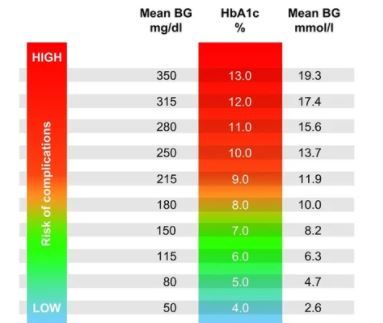The highest rates of CV events among all participants were among those with overweight and were higher even than among those with obesity--a finding worth further study, said Michel.
- CDC
- Heart Failure
- Cardiovascular Clinical Consult
- Adult Immunization
- Hepatic Disease
- Rare Disorders
- Pediatric Immunization
- Implementing The Topcon Ocular Telehealth Platform
- Weight Management
- Monkeypox
- Guidelines
- Men's Health
- Psychiatry
- Allergy
- Nutrition
- Women's Health
- Cardiology
- Substance Use
- Pediatrics
- Kidney Disease
- Genetics
- Complimentary & Alternative Medicine
- Dermatology
- Endocrinology
- Oral Medicine
- Otorhinolaryngologic Diseases
- Pain
- Gastrointestinal Disorders
- Geriatrics
- Infection
- Musculoskeletal Disorders
- Obesity
- Rheumatology
- Technology
- Cancer
- Nephrology
- Anemia
- Neurology
- Pulmonology
ACC.21: Prediabetes Significantly Increases Risk for MACE, According to New Findings
ACC.21: Findings from a study released in advance of the ACC annual meeting suggest that prediabetes confers nearly twice the risk of major cardiovascular events vs normoglycemia.
©Sophia Winters/stock.adobe.com

A study to be presented this weekend at the virtual American College of Cardiology’s 70th Scientific Sessions (ACC.21) underscores the underappreciated threat of prediabetes to cardiovascular health.
Specifically, analysis of data from a large health system database found the presence of prediabetes nearly doubled the risk for major adverse cardiovascular events (MACE) vs normoglycemia.
Prediabetes has generally been considered “no big deal,” said Adrian Michel, MD, internal medicine resident at Beaumont Hospital-Royal Oak, in Michigan, in a statement. "But we found that prediabetes itself can significantly boost someone's chance of having a major cardiovascular event, even if they never progress to having diabetes"
Michel added that the focus on prevention needs to start earlier. "Instead of preventing diabetes, we need to shift focus and prevent prediabetes."
The role of prediabetes as a risk factor for CV morbidity and mortality is far less clear than that for frank type 2 diabetes (T2D). Yet, the Centers for Disease Control and Prevention estimates that 1 in 3 Americans have prediabetes compared with 1 in 10 who have diabetes, according to the statement from from the American College of Cardiology.
To investigate the potential connection, Michel and a team of colleagues from Beaumont Health conducted a single-center retrospective chart review, collecting data from 25 829 patients treated within the Beaumont Health System between 2006 and 2020.
Based on 2 A1c levels obtained at least 5 years apart, patients were divided into a group with prediabetes sustained through the study period (n=12 691) and a control group in which normoglycemia was maintained during the study (n=13 138). For study purposes, prediabetes was defined as A1c between 5.7-6.4%.
The highest rates of CV events among all participants were among those with overweight and were higher even than among those with obesity--a finding worth further study, said Michel.
Participant age ranged from 18 to 104 years. All patients were followed for the 14-year study period. ICD codes were used to identify occurrences of MACE and investigators used Chi-Square analysis to compare event rates between groups.
Analysis found that MACE occurred among 18% of patients in the prediabetes group and 11% in patients in the control group over a median of 5 years follow-up. Comparison of the groups using Chi-Square analysis found that prediabetes was associated with nearly twice the risk of experiencing a major adverse cardiovascular event (17.07; 95% CI, 17.3-18.63 vs 11.01; 95% CI, 10.48-11.55; P<.0001).
These results, according to the authors’ statement, remained significant even after adjustment for factors including age, gender, BMI, blood pressure, cholesterol, sleep apnea, smoking status, and peripheral artery disease.
Of significant concern was the finding that risk of having a CV event was still elevated among patients with prediabetes even after A1c was lowered to a normal range. Events occurred in just over 10.5% of these patients compared with 6% of those with no diabetes or prediabetes.
"As clinicians, we need to spend more time educating our patients about the risk of elevated blood sugar levels and what it means for their heart health and consider starting medication much earlier or more aggressively, and advising on risk factor modification, including advice on exercise and adopting a healthy diet,” Michel said.

The study, “Prediabetes associated with an increase in major adverse cardiovascular events” will be presented virtually by Adrian Michele, MD, at ACC.2021 on Sunday, May 16, at 2:30 pm ET.
